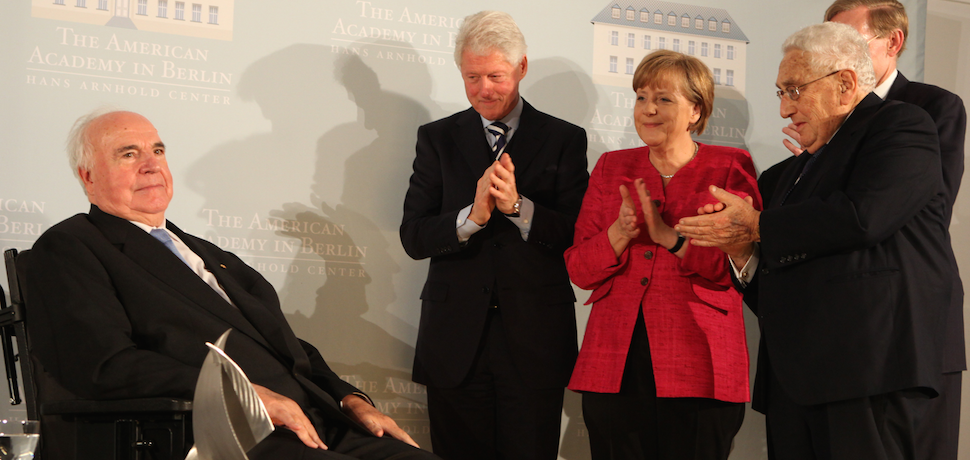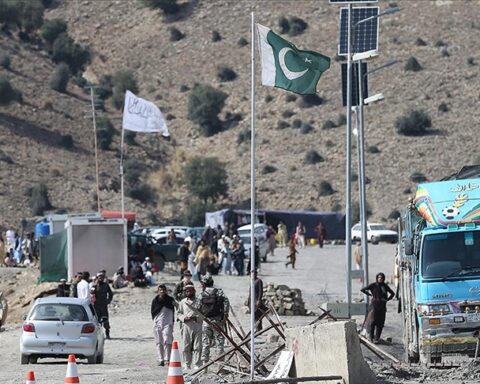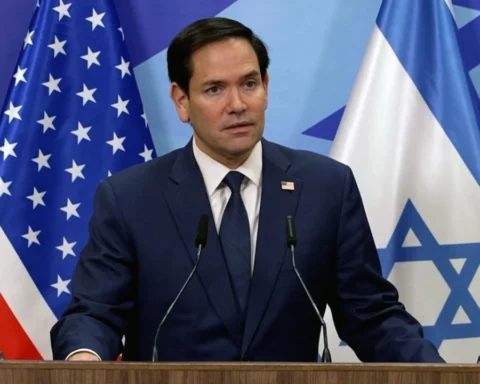For more than three years, Ukraine has been ravaged by the bloodiest conflict on the European continent since the Second World War. The outcome of this war will have significant ramifications for the security of all Europeans, yet we are not even at the negotiating table. We are relegated to the status of helpless bystanders, as others decide our future.
The slow exit of European nations from the centre stage of history is not new. In the mid-1990s, we were unable to prevent mass killings and the construction of concentration camps in the former Yugoslavia. More recently, during the Syrian crisis – which destabilised all European societies due to migration and terrorism – where were we? Russians, Americans, Turks and Iranians decided the fate of a crisis for which we have not yet finished paying the price. And what about the Israeli-Palestinian conflict? While Europeans speak and gesticulate, the rest of the world thinks of Europe as Donald Trump remarked of Emmanuel Macron: ‘What he says doesn’t matter.’
And disappearing from history does not mean becoming an island of prosperity in a world beset by turbulence. In a geopolitical chessboard where brute force now prevails over the rule of law, abdicating the will and the ability to be an actor – rather than simply a spectator – means embarking on a path of long decline. It means that our interests and our identity are attacked day after day by third powers. It means that we are condemned to vassalage and humiliation.
Writing history is not the capricious desire of Europeans nostalgic for a glorious past. It is the very condition of our survival and our ability to pass on to future generations what, from London to Warsaw and from Lisbon to Helsinki, makes us the heirs of a unique European civilisation. To be able to do so, Europe has no choice but to build the foundations of a truly European diplomacy, rooted in new European strategic thinking.
In my new book, ‘Henry Kissinger: An Intimate Portrait of the Master of Realpolitik’, I argue that the life and work of Henry Kissinger are a valuable compass in this generational endeavour. Henry Kissinger embodies the intellectual man of action. At a time when Europe is once again confronted with history at its most tragic, it needs to appoint to its leadership individuals who, like Henry Kissinger, are endowed with a moral and intellectual depth that allows them to act with courage and to situate their foreign policy within a long-term historical perspective.
Kissinger’s beliefs and actions can also help us to lay the intellectual foundation of a new European diplomacy. Instead of our traditional diplomacy, which claims to be imbued with morality and idealism but is amoral in its impotence, the time has come to favor a diplomacy that accepts seeing the world as it is – a diplomacy of Realpolitik, of which Kissinger was the 20th century’s master. To those that would argue that such an approach would be cynical or brutal or ‘un-European’, I would say only that Kissinger was indisputably the direct heir to the great European diplomats of the 19th century, such as Castlereagh, Talleyrand and Metternich. At its core, Realpolitik is a method of action based on a rational and unsentimental analysis of the interests at stake.
In very concrete terms, a new European Realpolitik must be structured around four pillars. First, Europe must stop thinking of its foreign policy independently from its domestic policy. All good diplomacy rests on solid domestic foundations. It is by once again becoming an industrial and innovative power that controls its public finances that Europe will be able to reclaim the position it has abandoned over much of the last century.
Second, Europe must accept, whether on the geopolitical level or in commercial matters, that it cannot escape from the global balance of power. We must be both more cognisant of our assets –including our commercial power, the size of our market and our soft power – and more willing to deploy them in pursuit of our international ends. Our relationship with the United States should be no exception.
Third, in the most classic European realist tradition, there will be no credible European diplomacy without force. Without the military power essential for deterrence, any attempt on our part to shape the balance of power will be doomed to failure.
Finally, Europeans must look to the rich resource of our diversity and history, the upheavals and tragedies, as well as periods of enlightenment, to seek to understand a world facing profound changes. For many, uniting Europe’s nations – who sometimes appear more interested in internecine bickering than rational contemplation of our continent’s place in the world – behind a common diplomacy may seem an unattainable dream. But as Kissinger wrote in lines dedicated to Metternich: ‘Men become myths, not by what they know, nor even by what they accomplish, but by the tasks they set for themselves.’
Source: https://capx.co/europe-must-discover-its-inner-henry-kissinger






